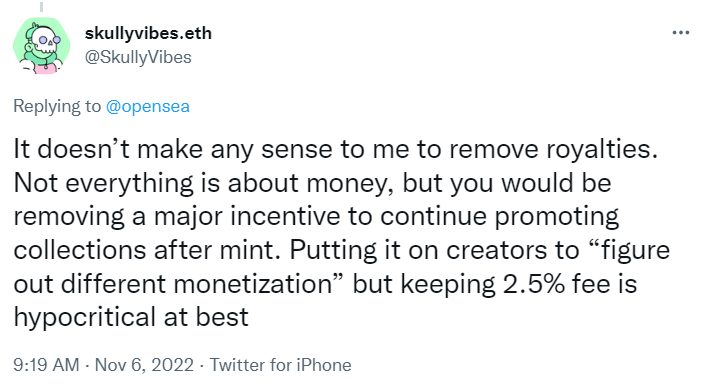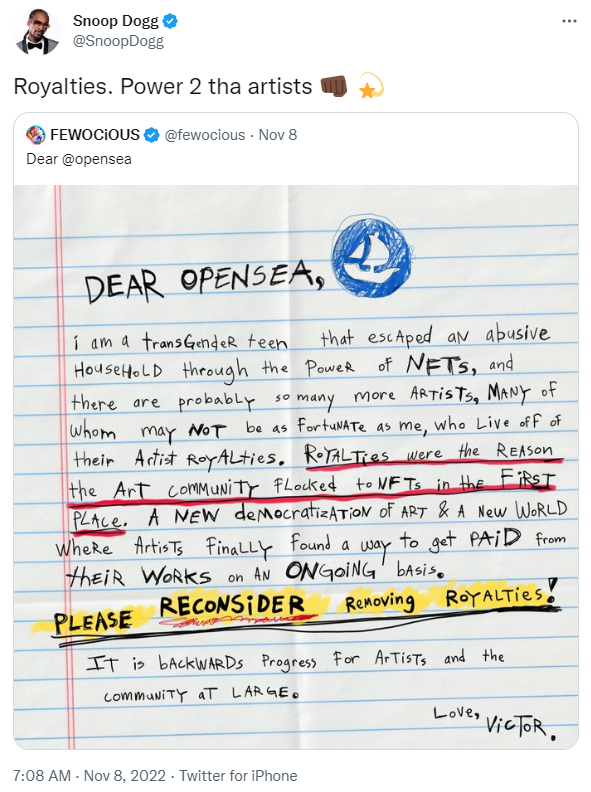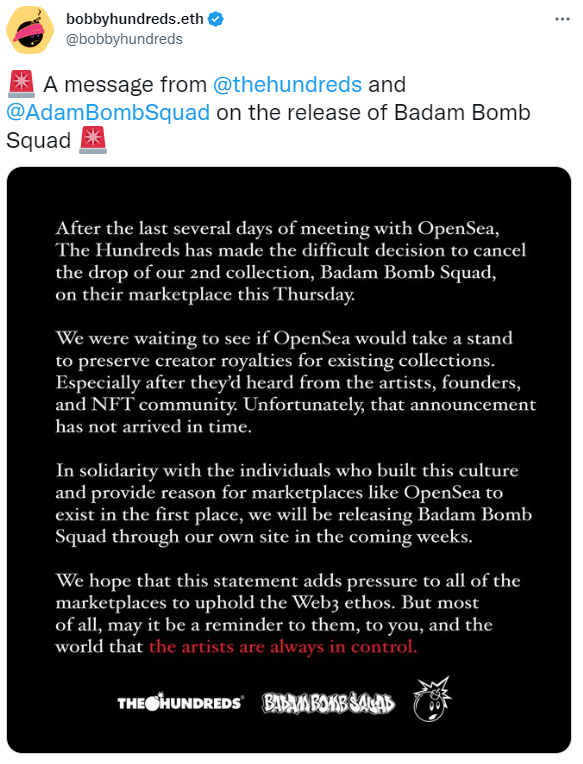The ongoing debate on creator royalties reached a tipping point this week. OpenSea, the biggest NFT marketplace, had hinted that it might remove creator fees to keep up with newer marketplaces that make royalties optional.
In a blog post, OpenSea announced that it would launch a tool for new collections to enforce creator royalties. For existing collections, however, the platform revealed that several options were being considered—including zero royalty.
Unsurprisingly, creators were not happy.

How Artists Pushed Back
Several creators and top voices, including Snoop Dog, weighed in. The vast majority echoed the sentiment that NFT royalties allow artists to sustain themselves in a way that traditional artwork cannot.

Many felt that it was abandoning them by not enforcing royalties on existing collections. The community noted that it was due to these projects that OpenSea became the leading NFT marketplace.
Several artists banded together to influence OpenSea’s stance. Streetwear brand The Hundreds cancelled the launch of Badam Bomb Squad on OpenSea, saying "Artists are always in control."

Deadfellaz co-founder, @betty_nft, also criticized OpenSea. She wrote on her private account, “If you’re a project founder please message me and I will provide you with a form to register your interest for a group call to discuss the implications of what @opensea is proposing as well as our moves together as leaders in the space.”
After the massive backlash from the NFT community, the marketplace backtracked and said it would continue to enforce creator fees for existing creations.
The Royalty Debate
Many NFT artists charge a 5–10% royalty fee on secondary sales. Ethereum-based NFT projects have collected over $1.8 billion in royalties.
But as NFT prices continue to plunge in the bear market, buyers are becoming price-sensitive. The market is also pushing back against collections that continue to charge royalties despite not delivering on their roadmap.
As a result, royalty-free or optional royalty marketplaces like SudoSwap and LooksRare have emerged. This has prompted prominent platforms like OpenSea to also consider changes.
The ongoing debate has two schools of thought. Those in favor feel NFT projects often start with low initial sales but become more popular over time, and that’s why royalties are important for creators.
On the other hand, those opposed to royalties claim that on-chain enforcement is not possible without compromising the ethos of Web3. Also, it no longer seems to be a sustainable business model as buyers become increasingly price-sensitive.
It’s clear that the space is evolving. But it may come at a huge cost to artists. For now, the creators have won.


